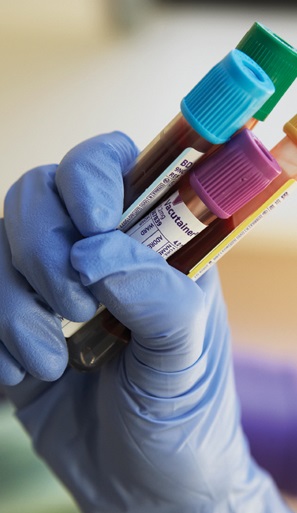Biobank to track cases
 The Victorian Government has funded a new COVID-19 biobank.
The Victorian Government has funded a new COVID-19 biobank.
Up to $5 million will be spent enabling scientists to better understand the immune response and long-term effects of COVID-19 vaccines.
A biobank is an organised collection of biological samples for research use that can enable important disease insights to be made more quickly and easily than an ad-hoc approach to specimen collection.
The Victorian COVID-19 Vaccinees Collection – or VC2 will collect samples from participants both before and after they are vaccinated.
University of Melbourne Professor Sharon Lewin says the creation of a vaccine biobank is vital to centralising and co-ordinating Victorian coronavirus research knowledge and resources.
“To understand vaccine responses in detail, researchers need access to carefully prepared cell and plasma/serum samples from a variety of people before and after vaccination,” Professor Lewin said.
“Usually researchers set up their own small collections of around 50 to 100 people. An initiative like VC2 will give all Victorian researchers access to a large number of well curated samples with all the clinical data they need.
“It will be a powerful resource enabling many more investigations to take place and we are very thankful that the Victorian Government saw the benefit in it.”
The VC2 will approach diverse Victorians to donate samples both before and for up to two years after they are vaccinated.
Understanding the long-term impacts of COVID-19 vaccination will be important across groups of people who may respond differently to the vaccines, including Aboriginal and Torres Strait Islanders, people over 70 and those with underlying health conditions
It is particularly important to understand the long-term durability of vaccine responses in a low-COVID-19 setting such as Victoria and as new variants emerge.
Up to 1,500 participants are needed and Professor Lewin encouraged people to consider donating their samples.
“We’re now calling on Victorians to play their part in helping us understand the long-term effects of vaccines,” Professor Lewin said.








 Print
Print